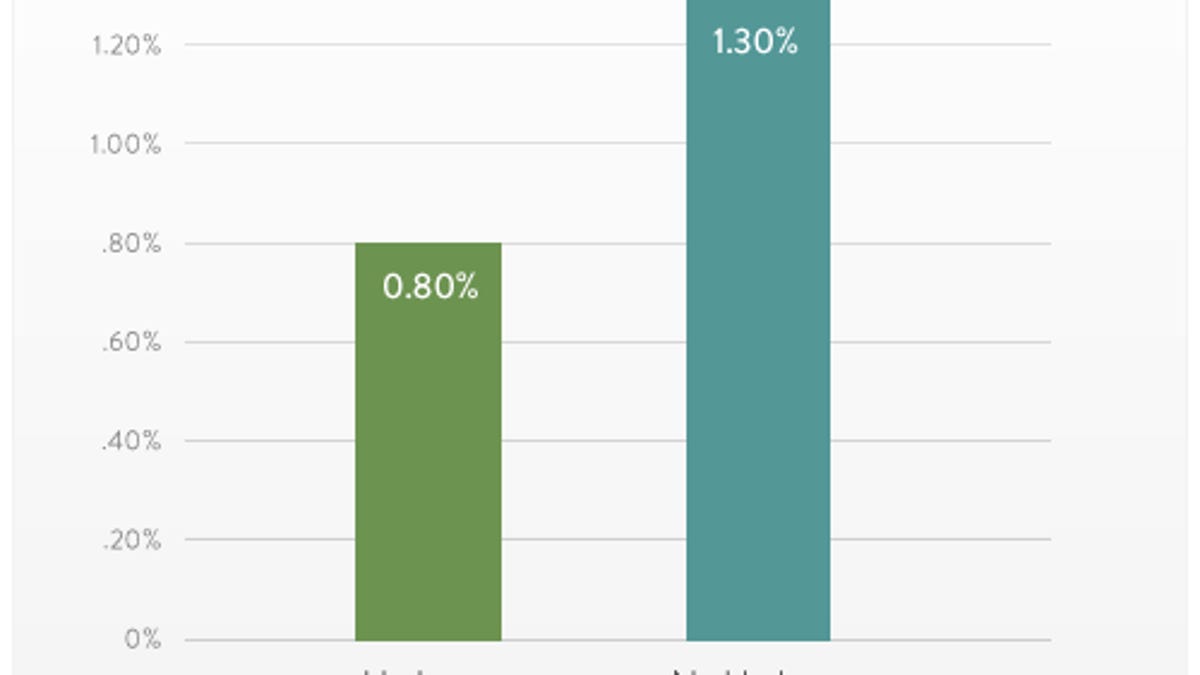Facebook hashtags said to have zero viral impact
While Twitter hashtags help drive exposure on the social network, new data shows that Facebook hashtags have the opposite effect.

On social networks, hashtags are meant to hype exposure for various topics or products. This is probably why Facebook rolled out its new hashtag feature in June. So, how has that gone for the social network?
Um, not so good.
New data released Tuesday by Facebook analytics service EdgeRank Checker shows that Facebook hashtags reportedly do zilch for the social network -- no extra exposure, no viral reach. And, even worse, they may be creating a negative impact.
According to EdgeRank, posts with hashtags are less likely to have viral reach than those without a hashtag.
"The data shows that posts that didn't include a hashtag performed better than posts with hashtags... posts with hashtags don't increase viral reach," EdgeRank wrote in a blog post.
Popularized by Twitter, hashtags let social networkers insert themselves into real-time conversations happening around events, television shows, and breaking news. Theoretically, users will click on hashtags to discover more content related to that topic. Ideally, certain topics will start trending or even go viral. Facebook launched its hashtag feature for desktop in June and then added mobile support a couple of weeks later.
EdgeRank analyzed Facebook hashtags by looking at more than 500 Pages in July. Within these Pages, there were more than 35,000 posts, of which more than 6,000 had hashtags. To get the metrics, EdgeRank averaged each Page's performance with and without hashtags.
No matter how EdgeRank tallied the data -- such as based on how many fans a user had, time of posting, and consistency of hashtag use -- the Facebook hashtags did nothing for their users.
Confounded by the results it came up with, EdgeRank took a look at whether Twitter's hashtags worked for exposure. And, hands down, hashtags proved to be helpful for viral reach on Twitter.
"For Twitter, using a hashtag typically resulted in roughly double the likelihood of being ReTweeted," EdgeRank wrote. "Over 70 percent of the brands experienced an increase in RT's when using a hashtag versus not using one."
EdgeRank hypothesizes that the reason why Facebook hashtags are useless is because few people are clicking on them. According to EdgeRank, the reason not a lot of people are clicking is because brands are not using them correctly.
"After examining how hashtags are being used, hashtags are often used in promotional material," EdgeRank wrote. "For some brands, they've created campaigns around particular hashtags and use them in all posts associated with the campaign. By nature, campaigns are promotional, therefore more likely to drive less engagement, less clicks, and ultimately less reach."
A Facebook spokesperson told CNET the idea of analyzing hashtags on the social network is more complicated than just looking at viral reach. For increased exposure, Facebook's algorithms are focusing on posts with high-quality content, rather than simply hashtags.
"When we introduce a new product at Facebook, we focus on getting the user experience right; hashtags are no different. Since they are prone to abuse from, for instance, meme Pages, we've been focused on fine tuning the ranking algorithms before we surface them more prominently to people," the Facebook spokesperson said. "Pages should not expect to get increased distribution (what some call virality) simply by sticking irrelevant hashtags in their posts. The best thing for Pages (that want increased distribution) to do is focus on posting relevant, high quality-content -- hashtags or not. Quality, not hashtags, is what our News Feed algorithms look for so that Pages can increase their reach."

